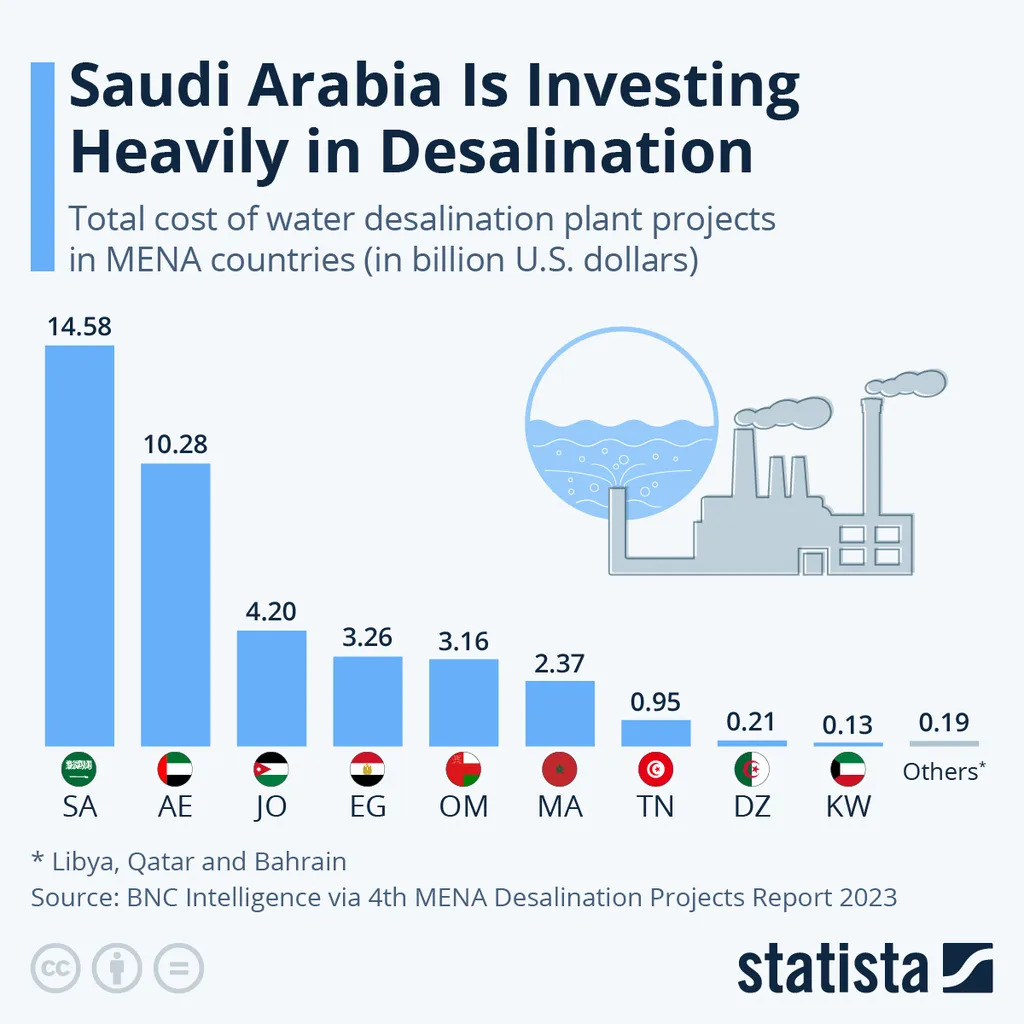In the arid landscapes of Saudi Arabia, where freshwater is a precious commodity, a groundbreaking study offers a promising solution to the dual challenges of energy and water security. Published in the *International Journal of Thermofluids*, the research led by Qamar Abbas from the Department of Mechanical Engineering at King Fahd University of Petroleum & Minerals, Dhahran, delves into the techno-economic viability of renewable energy systems coupled with storage solutions to power desalination plants.
The study, which analyzed standalone solar, wind, and hybrid solar-wind energy systems with battery or pumped hydro storage, provides a roadmap for sustainable desalination. “Our analysis showed that hybrid solar-wind systems with pumped hydro storage are the most feasible configuration for cities like Yanbu and Jeddah,” Abbas explained. “For Jazan, solar with pumped hydro storage emerged as the optimal choice.”
The findings are significant for the energy sector, particularly in regions with high solar and wind potential. The study reveals that the cost of electricity for desalination can be as low as 0.173 $/kWh in Yanbu and Jeddah, and 0.179 $/kWh in Jazan. This translates to desalinated water costs ranging from 0.787 to 0.899 $/m³, making renewable energy-powered desalination a cost-effective solution.
The research also highlights the potential of pumped hydro storage as the most cost-effective energy storage option. “Pumped hydro storage not only reduces the overall cost but also ensures a stable supply of electricity for desalination plants,” Abbas noted.
The implications of this study extend beyond Saudi Arabia. As the world grapples with climate change and water scarcity, the integration of renewable energy systems with storage solutions for desalination could become a global model. The study’s findings could shape future developments in the field, encouraging further investment in renewable energy and storage technologies.
In the words of Abbas, “This research is a stepping stone towards achieving sustainable water and energy security. It’s a testament to the potential of renewable energy in transforming the desalination industry.”
As the world moves towards a net-zero future, this study serves as a beacon of hope, demonstrating that sustainable solutions are not only viable but also economically competitive. The journey towards a water-secure future powered by renewable energy has just begun, and the path forward looks promising.

